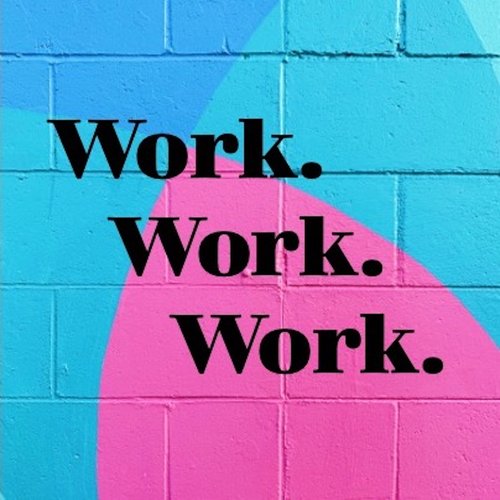The Work Futures Hallmark Research Initiative has launched the podcast Work.Work.Work. The first season takes a deeper look at the legacy effects of the pandemic on the way people are working today. Each episode features experts and everyday Australians and is hosted by Dr Peter Ghin from the Faculty of Business and Economics, University of Melbourne.
At the height of the pandemic lockdowns, a majority of Australians found themselves working remotely. Overnight, kitchen tables around the country were transformed into our principal place of work. As our homes also became our workplaces, the boundaries between our personal and professional selves came crashing down, and how we dressed for work also changed dramatically.
As fashion scholar Dr. Harriette Richards notes, “our lounge rooms were not just our lounge rooms anymore. They were our workplaces… they were schools …they were gyms, they were everything… So I think that created a lot of confusion in terms of what we wore."
Dr Richards is one of the guests that features in the latest episode of University of Melbourne’s new Work.Work.Work. podcast - a podcast that expertly guide listeners through the lived experience of the modern workplace.
Work.Work.Work. explores the ways that work is changing, and more importantly, perhaps, how people are experiencing those changes. In each episode, the host Dr Peter Ghin, interviews academics, subject matter experts, and people with lived experience, to create a rich storytelling experience.
The first season of Work.Work.Work. takes a deeper look at the legacy effects of the pandemic on the way people are working today. Episode two, Sweatpants. Check! Half-mullet. Check!: The casualisation of workwear in the age of remote working, explores how the pandemic has helped reshape the definition of professional workplace attire (or ‘profesh dress’), and how this change has been experienced differently by women and men.
Sulagna Basu, one of the co-authors of the report, COVID Casual: Refashioning professional attire in the age of remote working, explains how the accelerating shift toward workwear casualisation afforded many women the opportunity to subvert the usual gender workplace norms:
“The norm of what counts as professional attire is very much tuned to men... Being able to dress casually at home was I think... a subversion of that where they were pushing back against this otherwise quite rigid an idea of what it means to be professionally dressed as a woman."
But as Dr Richards notes, these effects were not universal. Some people experienced the enforced casualisation during the pandemic as ‘constraining or oppressive’. This was particularly true during the height of the pandemic when access to beauticians and hairdressers was limited, and people were “so tired of being at home and not having the opportunity to get dressed up or to just feel better within themselves.”
Host and creator of the Work.Work.Work. podcast, Dr Peter Ghin, says that while fashion is often denigrated as being ‘trivial’, “the clothes we chose to wear can have a profound effect on our sense of wellbeing and how others perceive us”. He said, “These conversations made me really reflect of how the ‘pandemic reset’ really gave people the opportunity to transform not just their professional wardrobe, but their relationship to themselves.”
In episode two of the Work.Work.Work podcast, Dr Ghin explores the post-pandemic effects on the employment landscape for young people. One of his guests from the Melbourne Institute, Dr Jan Kabátek, discusses the research he undertook at the height of pandemic which showed the disproportionate effects that COVID-19 had on young people, especially on their employment opportunities and mental health.
"I think the main characteristic which drove this susceptibility was that (young people) were working predominantly in the sectors that were directly affected by the lockdowns... A lot of young people's work in retail, a lot of people work in hospitality. And since the city really shut down, these work opportunities just disappeared." (Jan K)
But as guest Jan Owen AM points out, the lingering effects of the pandemic aren’t all doom and gloom for young people. There are also opportunities that have arisen from graduating into a new world of work, where remote and hybrid working has become an established norm, and a world in which many people are reassessing how much they want work to dominate their lives.
I think young people inherit the kind of conversation about what does meaningful work mean? What does a meaningful and purposeful life mean? How do I balance my family…finding my people, spending time in work that I love, and I'm passionate about. (Jan O)
Dr Ghin also speaks directly to young people about their experiences of the pandemic, and what lessons they’re taking with them as they graduate into a new world of work. He says that, “the young people we have spoken to for the podcast have shown incredible resilience, and an ability to both grieve what they have lost during the two years of the pandemic but also see the value of what they have learned about living in a time of extreme uncertainty.”
